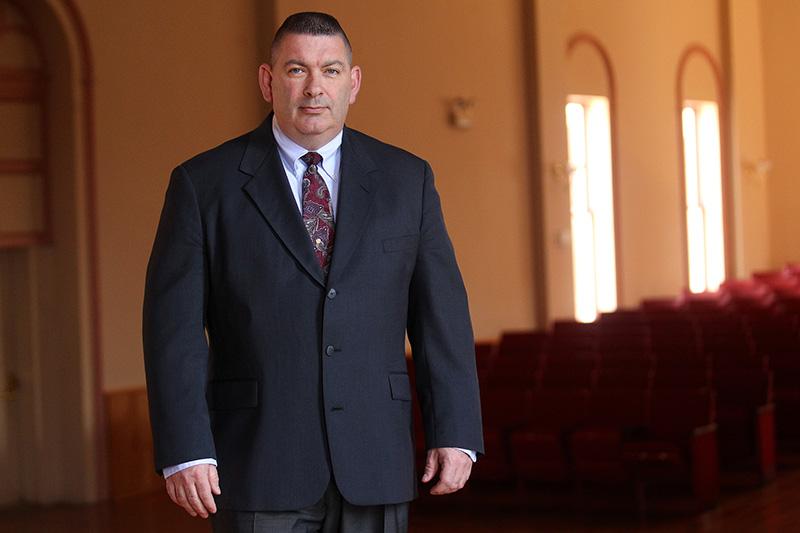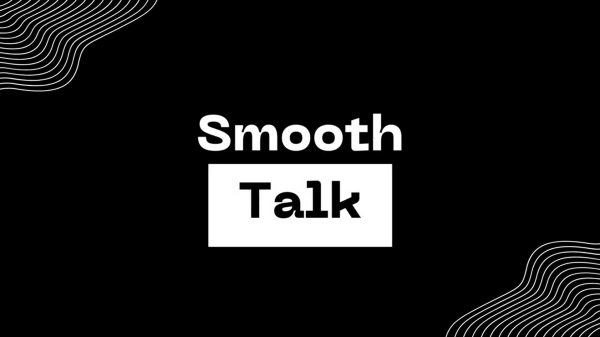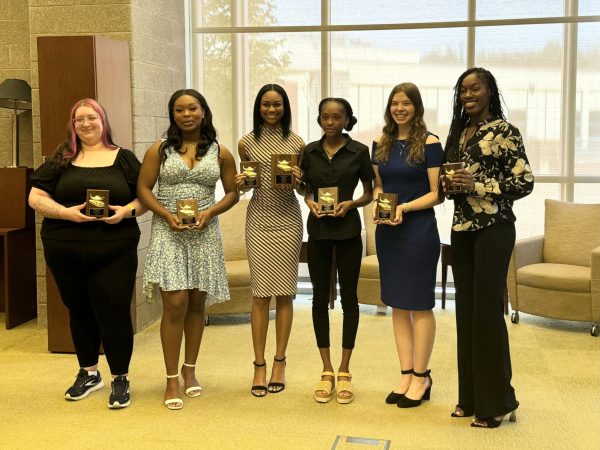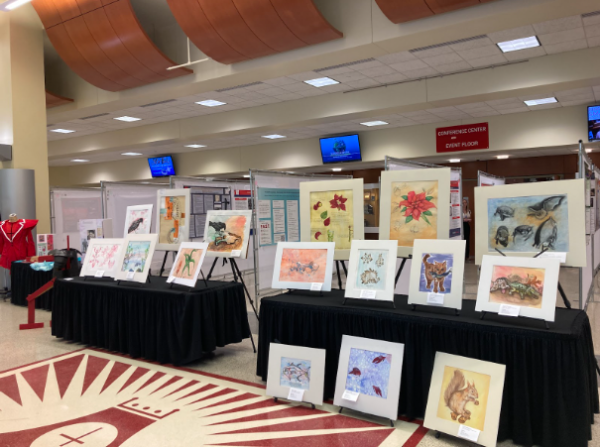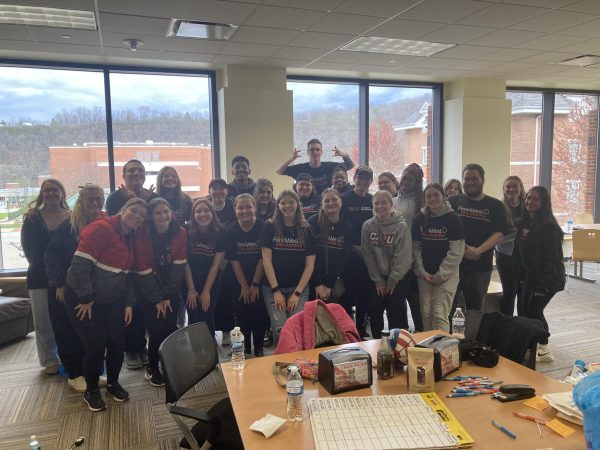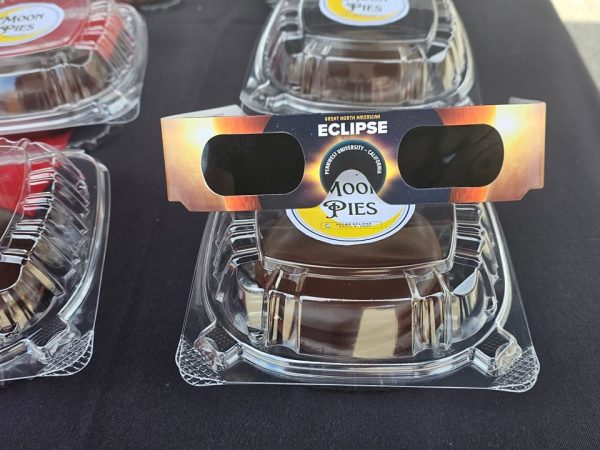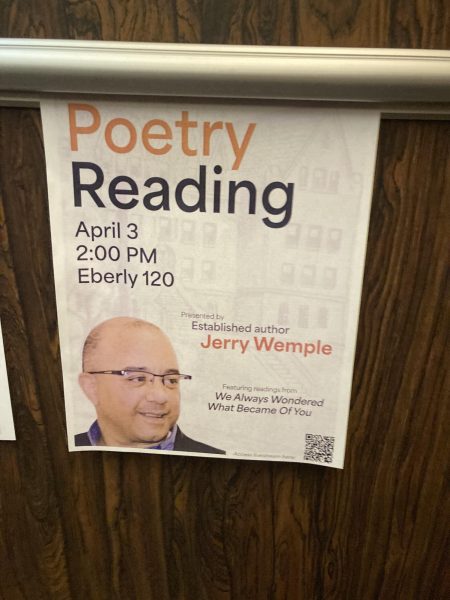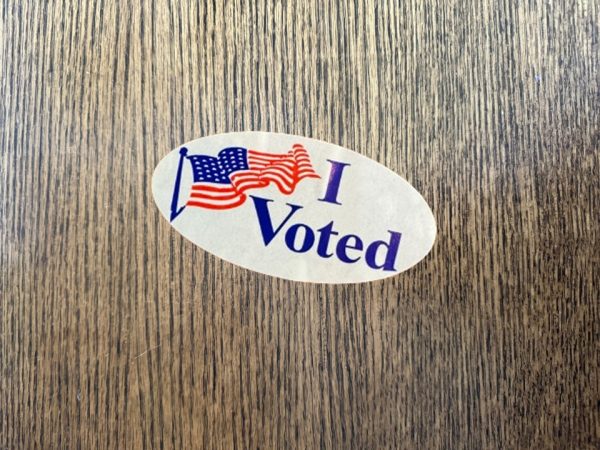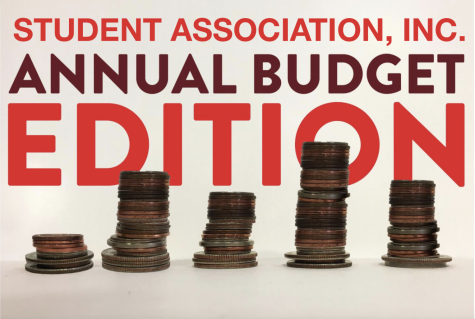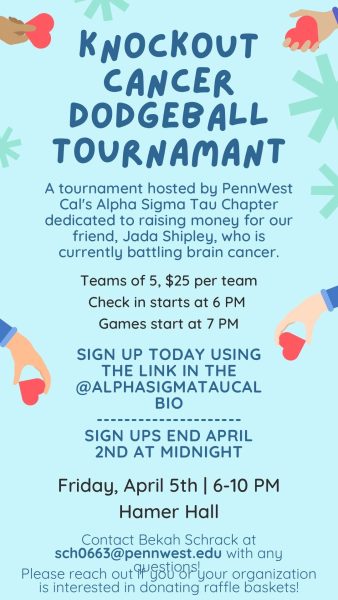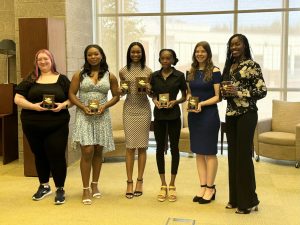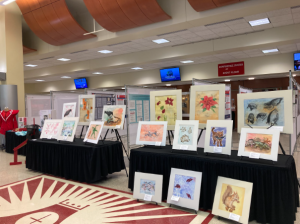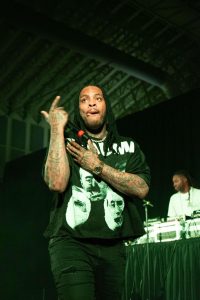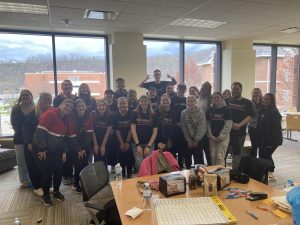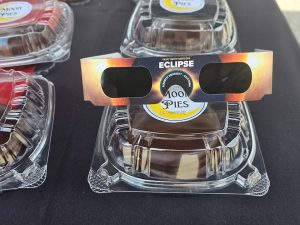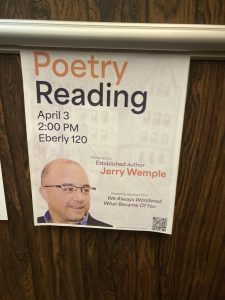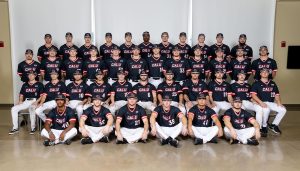University, BSU Work Together to Better Define Event Policies
University Officials want students to report racism
California University of Pennsylvania Police Chief Edward McSheffery spoke to the Cal Times about his desire to improve the educational experiences of all students. He encouraged any student feeling threatened for any reason to contact the campus police office. McSheffery is also actively working on late night event policies with university officials.
Last week, the Cal Times published a story on the first half of Interim University President Geraldine Jones’s “Campus Talk,” held on Nov. 4 in the university’s Performance Center. This week, the article will continue, this time discussing the second half of the campus talk. Included in the piece are separate interviews with Black Student Union Vice President Rodney Edwards, California University of Pennsylvania Police Chief Edward McSheffery, Director of Communication and Public Relations Christine Kindl, and Title IX Coordinator John Burnett.
During the second half of Interim University President Geraldine Jones’s fall Campus Talk, where students have the opportunity to ask questions about important issues pertaining to Cal U, numerous members of the university’s Black Student Union (BSU) inquired why a homecoming dance the group held in the university’s Performance Center experienced what the group described as increased police surveillance. According to BSU’s Vice President Rodney Edwards, who spoke about the dance to the Cal Times via telephone after the campus talk, BSU had expected three California University of Pennsylvania police officers to attend the event. In total, seven university officers, including the chief and assistant chief, showed up.
According to Edwards, the dance, held on Oct. 31, was meant to benefit the university’s African American Scholarship fund, the Jennie Carter scholarship fund. From the start of the evening, Edwards said something didn’t feel right about the event.
“There was an eeriness in the air,” Edwards said. “The police seemed scared of black students, and the event was uncomfortable.”
The first issue Edwards and BSU told the university they encountered was that police and event staff started rejecting attendees arbitrarily.
“First, there were only 350 wristbands available at the door,” Edwards said. “Then, when the room started to fill up, police began rejecting alumni and current students.”
Additionally, Edwards claimed a police officer made a quip about “how since we don’t have to admit any more kids to the BSU party, I can go break up house parties in town.”
BSU told Jones that campus police and staff wouldn’t allow the group to dim the lights in the Performance Center.
It was at this point the group became visibly frustrated.
“You know how dances are,” Edwards said. “Almost every time you go to one, the lights are off. But they made us leave the lights on.”
By 10 p.m., frustrated BSU members began gathering in the Natali Student Center Food Court. By 10:30, the event was over. According to Edwards, the rapid decline in interest that occurred that evening was unacceptable.
“We took all this time to plan this event, an event meant to benefit the university and the Jennie Carter fund, and it ended at 10:30,” Edwards said. “It was supposed to run until 12:30. We weren’t able to come close to reaching our goals.”
Before and after the campus talk, BSU made it clear to Jones and campus police they felt the way they were treated was racially fueled.
“I had never before experienced what I felt was racism by administration,” Edwards said. “But I did in this case.”
According to campus police and administration, the way the dance was handled was not racially charged.
Christine Kindl, director of communications and public relations at Cal U, said in an email to the Cal Times the university always takes many factors into account when deciding security measures at events.
“These decisions are made based on a wide variety of factors, including the type of event, when and where it is held, how late it is scheduled, and what else may be going on — such as (in this case) homecoming activities and an increased number of visitors on campus and in town,” Kindl said. “The concern, first and foremost in every case, is the safety of our students, employees and visitors.”
Edward McSheffery, police chief of the Cal U police department, agreed with Kindl via email to the Cal Times, saying the increased police presence at the BSU event was merely an extension of the increased police presence on campus during homecoming weekend.
“They were given 350 wristbands for the dance,” McSheffery said. “There is no rule for how many officers will work a dance. During homecoming weekend, we had all our officers working long shifts due to the parade, football game, dance and just the increased potential for incidents due to Homecoming and the large number of visitors on campus and in the area.”
When given a similar answer by police at the campus talk, members of BSU were quick to say other parties in the past weren’t policed the way the homecoming dance was. One member of BSU, JaQuan Cornish, cited a party that had well over 600 attendees that occurred on campus in the past.
Although he was correct that such an event took place, it didn’t occur under McSheffery’s watch.
“Since I have been Chief, wristbands have been used,” McSheffery said. “The dance that was referred to during Campus Talk stating that 600 people were allowed and no wristbands were issued occurred in the Fall of 2012, not the Fall of 2013 as stated at campus talk, this was confirmed by BSU members. I was hired at Cal U in April of 2013 and we have issued wristbands since that time.”
Some members of BSU also claimed police were acting as adversaries. One commenter during the campus talk went as far as to say “police need to accept we are here to get an education, instead of treating us like adversaries.”
McSheffery said that comment in particular caught him off guard and hurt his feelings.
“I actually felt very hurt by it, my main goal is to keep everyone safe here on campus and build positive relationships and have outside communities look at Cal U as a great resource for this area,” he said.
However, despite largely exonerating his staff and claiming they are well-trained to deal with minorities, McSheffery did agree with BSU that if an officer made the comment the group claimed he did concerning breaking up house parties, he used poor judgment.
“If it was said by any officer I agree it wasn’t appropriate,” McSheffery said. “Our officers work long hours during homecoming and special events. Everybody wants everything to go without issue.”
According to Edwards, he still has his doubts about the police’s demeanor that night.
“There were instances where police made rude comments and acted rudely,” Edwards said. “They seemed like they didn’t want to be there.”
In the past week, the university has met with both BSU and the campus police to help better define building and security policies, especially for events that end late at night.
According to Edwards, the meeting with BSU, which occurred last Thursday, Nov. 11, was productive.
“The university seemed much more interested in helping BSU solve the problem than they did during our meeting prior to the campus talk,” Edwards said. “The first time we met, [Vice President of Student Affairs] Nancy Pinardi and [Interim Associate Vice President of Student Affairs] Larry Sebek weren’t present [they were in Harrisburg on behalf of the university]. And [Interim] President Jones didn’t give us clear answers there or at the campus talk.”
That said, Edwards still sees issues concerning the campus community and race relations.
Shortly after the campus talk, there were numerous racially charged posts on Yik-Yak about BSU members. Because users can post on the app anonymously, the posters couldn’t be identified. However, the fact this kind of racism is present on campus is extremely disconcerting to Edwards.
“It’s ridiculous,” Edwards said. “One person on Yik-Yak referred to a female BSU member as a silverback, and she was extremely hurt. People got mad at us for voicing displeasure with racial inequality and injustice? It’s disgusting this happens in 2015.”
Edwards also indicated this wasn’t the first time he had encountered racially insensitive language while on campus.
“I’ve heard culturally insensitive things before. Some may have been inadvertently ignorant, but it’s still a shame this sort of stuff happens on a campus that preaches diversity.”
Moving forward, BSU is calling on President Jones, as an African American woman, to step out front and help combat racial inequality.
“As a Cal U graduate and an Alpha Kappa Alpha [the African American sorority on campus], President Jones should be out front on these issues.”
In the days since the campus talk, both McSheffery and John Burnett, a special assistant to the president and the university’s Title IX coordinator, have said any students who feel discriminated against need to report the incident.
“Any student that feels they are being harassed due to their race, color, religion, age, gender, sexual orientation, national origin, disability or veteran status should report that as soon as possible to the Social Equity Office,” Burnett said. “Students can file their complaints online with the Social Equity Office, but the preference is for them to come in person to file. If anyone sees a threat on these sites making reference to violence or threat of violence, they are encouraged to contact the campus or local police.”
By confronting these, Jones and the university hope to persuade BSU members like Edwards who no longer feel comfortable attending Cal U that the university is dedicated to creating a more tolerant campus.
“If I weren’t dedicated to my graduate studies, I’d have no problems leaving Cal U,” Edwards said. “As of right now, I don’t feel comfortable attending this university.”
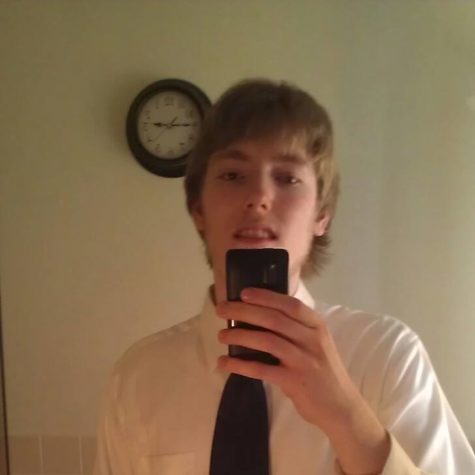
Stetson was a writer and News Editor for the Cal Times newspaper before his graduation in the Fall of 2015.

